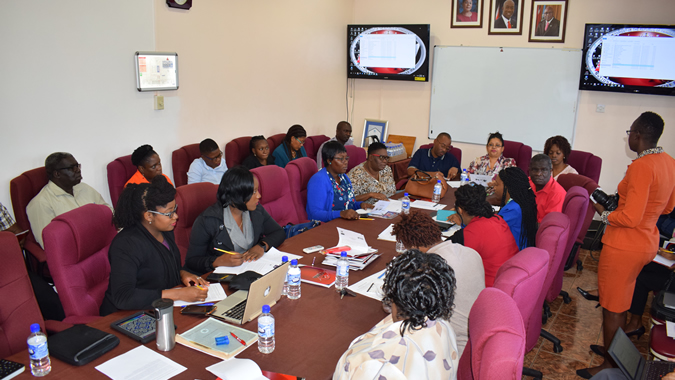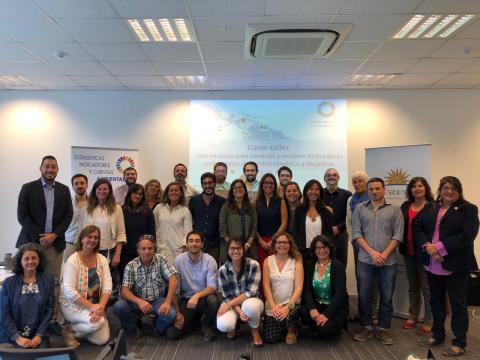News
With the “rainy” season in Trinidad and Tobago already beginning, the Economic Commission for Latin America and the Caribbean (ECLAC) subregional headquarters for the Caribbean took its Damage and Loss Assessment (DaLA) methodology training to Tobago from 23-25 May 2018.
Some of the areas that were covered over the three days included an introduction and basic concepts of the Disaster Assessment Methodology, the role of planning in disaster risk management and its impact on the attainment of the Sustainable Development Goals (SDGs), how the population can be affected, and how areas such as housing, electricity, telecommunications, transportation and tourism may be changed.
ECLAC’s DaLA training course provided participants with an increased capacity and awareness for disaster risk reduction on the island. In this regard, the ECLAC team shared the experience of various governments in the region in incorporating disaster risk reduction in public investment and used examples of other disaster risk management initiatives and best practices to clarify the application and usefulness of the methodology.
The training was highly valued by participants. They appreciated the practical application of the methodology to assess damages and losses and the use of examples from countries in the region to illustrate it. They also understood the importance of collecting sectoral data permanently to have reliable baseline information in case of a disaster.
The training course was designed for policymakers and professionals involved directly with disaster risk management and risk reduction. In addition to officials of the Tobago Emergency Management Agency (TEMA) of the Tobago House of Assembly (THA), specialists from sectors such as water, electricity, education, and health were also invited to participate. This multisector composition of attendees was effective in allowing the exchange of information and experiences from different sectors in Tobago connected to disaster and risk management.
Participants commended the organizers on the content of the course and the way it presented a complex topic in a simple and engaging way, and underscored that the course was able not only to highlight the importance of damage and loss assessments in different type of disasters, but also to demonstrate the relevance of incorporating cross-sector measures to reduce vulnerabilities.
Moreover, ECLAC’s methodology follows a multisectoral approach to estimate the effects and impacts of a disaster. Since 2015, ECLAC has already completed four other courses in the Caribbean, which have benefited officials from nine countries and two territories. Through these training efforts, ECLAC hopes to create capable disaster assessment teams in the subregion, in recognition of the Caribbean as very vulnerable to disasters.
The training workshop in Tobago was requested by TEMA – who is responsible for disaster management on the island of Tobago –, and was supported by the Inter-American Development Bank (IDB).



